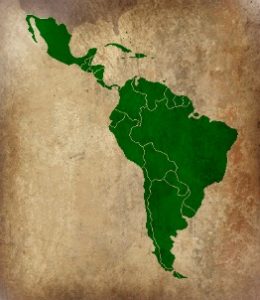Latin America Green News

![]() By Amanda Maxwell, La Onda Verde de NRDC
By Amanda Maxwell, La Onda Verde de NRDC
Chile
The Chilean Solar Energy Research Center—a newly formed organization comprising researchers from several of the country’s universities—will begin a multidisciplinary study of the solar energy potential in the Norte Grande. The project will identify key barriers to the development of cost-effective and sustainable solar energy technology, helping to build a scientific evidence base on the topic, inform the public and policymakers, and promote technology transfer programs. (Diario Financiero 3/13/2013; Universidad de Antofagasta 3/13/2013)
Drinking water delivered to several northern cities has exceeded the allowed toxin content limit for the past ten months, according to monthly water quality reports published by the Chilean Superintendence of Sanitation Services. The water, which was found to have elevated levels of sulfates, nitrates, and arsenic, supplies more than 500 thousand people in Copiapó, Caldera, Tierra Amarilla, Chañaral, Alto Hospicio and Arica, among other towns and cities. (Cooperativa 3/11/2013)
Environmental groups in Chile sent a letter to Congress on March 14 –International Day against Large Dams—calling on members of both houses to reject two major energy bills that are currently being debated. The advocates argue that both bills, one proposing a government-built transmission line and one proposing to fast-track electricity concessions, are designed to benefit the HidroAysén mega-dam proposal and other similar projects. (Terram 3/15/2013)
Costa Rica’s National Bank is planning to offset its 2011-2012 carbon footprint by purchasing $90,000 of carbon credits from small national farmers and ranchers. The compensation received by each producer will equal the CO2 emissions offset through green operational practices such as biodigester technology, use of hedgerows, and greater water efficiency. The 10-month initiative is aiming to benefit 300 small producers. (El Financiero 3/14/2013)
Zoo Ave, a Costa Rican animal rescue center, has reported the first birth in captivity of the King Vulture—an endangered species of the New World family of vultures that inhabits tropical lowland forests between Mexico and northern Argentina. This marks the first captive birth of the bird in Latin America and one of the few reported worldwide. (La Nación 3/13/2013)
Gray whales have found a mating refuge off of the coast of Baja California Sur, where ongoing preservation programs are attempting to help increase the population of these endangered cetaceans. The efforts appear to be working—researchers have identified 1,321 whales in the area this calving season (729 adults and 592 calves), up from just 62 adults in 2009 and 20 in 2010. (El País 3/11/2013)
An aquatic robot will begin to measure the effects of climate change on Mexican reefs, reports the Center for Research and Advanced Studies. The robot, named Mexibot, will be deployed off of the Costa Maya and will capture images of the area’s flora and fauna. The initiative aims to shed light on the diversity and predation process of the country’s Caribbean reefs. (El País 3/1//2013)
A change.org petition is calling on Juan José Guerra Abud, head of Mexico’s Ministry of the Environment and Natural Resources, to halt a mining project launched by the Mexican-Canadian firm Esperanza Silver de México. The gold mining initiative is located approximately half a kilometer from the Xochicalco archeological (and UNESCO World Heritage) site in state of Morelos. The petition, which has close to 800 signatures, is also directed at the state’s governor, given that Morelos has been severely impacted by the destruction of its natural ecosystems. (SDP Noticias 3/12/2013)
This article was first published in NRDC Switchboard.
Amanda Maxwell is a born and bred Jersey girl, but has lived for varying amounts of time in Michigan, Vermont, Rhode Island, New York, and the Czech Republic before moving to Washington, DC. Prior to joining NRDC she received my Masters degree in International Politics and Economics with a focus in Renewable Energy policy from Charles University in Prague. While there, she gained an appreciation for night running, train travel (especially of the high speed variety), and the local pivo. She received a Bachelors degree in history and Spanish from Middlebury College, and also studied in Buenos Aires.
[Photo by belgianchocolate]



